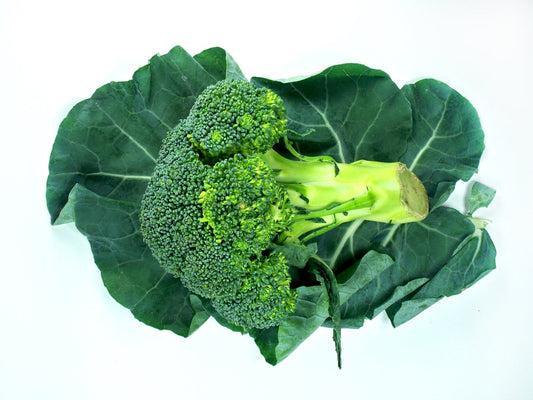
When you were younger you probably avoided broccoli, cabbage and kale or tried to feed them to your dog under the table. Research now reveals a better choice would have been to keep those veggies for yourself, unless you were trying to help your dog avoid colon cancer.
That’s because a new study shows a chemical compound produced during the digestion of those and similar vegetables was able to protect genetically prone mice from getting colon cancer. Researchers at the Francis Crick Institute fed mice a diet high in indole-3-carbinol (I3C) with surprising results.
I3C is generated when we digest cruciferous vegetables and the study was designed to help understand how I3C activates a protein within our intestines called aryl hydrocarbon receptor (AhR). AhR acts as a sensor and signals the immune cells and epithelial cells in the intestinal lining to protect us from inflammation and cancer.
"We studied genetically modified mice that cannot produce or activate AhR in their guts, and found that they readily developed gut inflammation which progressed to colon cancer," said researcher Dr. Amina Metidji. "However, when we fed them a diet enriched with I3C, they did not develop inflammation or cancer. Interestingly, when mice whose cancer was already developing were switched to the I3C-enriched diet, they ended up with significantly fewer tumors which were also more benign."
Fellow researcher Dr. Gitta Stockinger said, "Seeing the profound effect of diet on gut inflammation and colon cancer was very striking. We often think of colon cancer as a disease promoted by a Western diet rich in fat and poor in vegetable content, and our results suggest a mechanism behind this observation. Many vegetables produce chemicals that keep AhR stimulated in the gut. We found that AhR-promoting chemicals in the diet can correct defects caused by insufficient AhR stimulation.â€
It wasn’t just the genetically modified mice that benefitted from I3C. Researchers also studied unmodified mice with a normal AhR expression. Those given a standard grain-based diet or an I3C-enriched diet did not develop tumors, but those fed a purified control diet did. A purified control diet is a designed to be free from allergens and pathogens and is made from specific mixture of carbohydrates, fats, proteins and fiber and is enriched with vitamins.
"Normal mice on the purified control diet developed colon tumors within 10 weeks, whereas mice on the standard chow didn't develop any," said Dr. Chris Schiering. "This suggests that even without genetic risk factors, a diet devoid of vegetable matter can lead to colon cancer."
The results of the study were published recently in the journal Immunity and have researchers excited about expanding the scope of their study to include humans.
"A number of epidemiological studies suggested that vegetables may be protective against cancer," Stockinger said. "However, there is very little literature on which vegetables are the most beneficial or why. Now that we've demonstrated the mechanistic basis for this in mice, we're going to investigate these effects in human cells and people. In the meantime, there's certainly no harm in eating more vegetables!"



